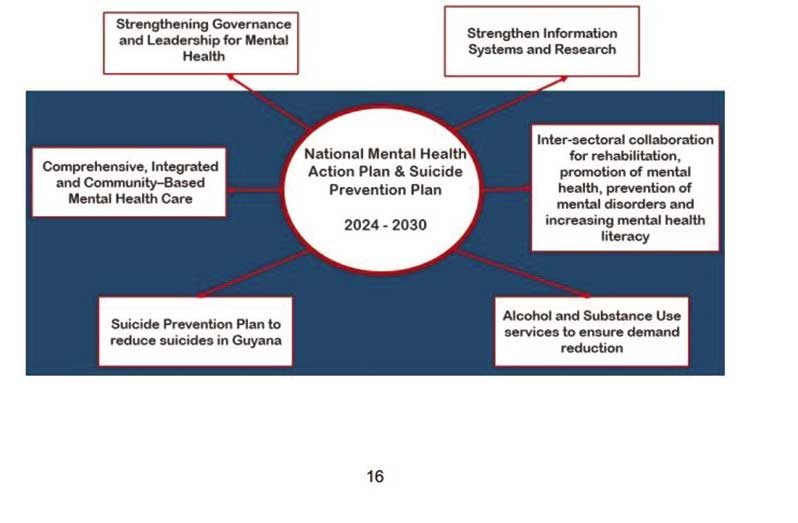AS part of this year’s National Doctors’ Day observance, the Georgetown Public Hospital Corporation (GPHC) is releasing an International Doctor’s Day 2025 series, which will focus on the daily lives of doctors employed at the medical institution.
The first episode in the series highlights psychiatrists, doctors who are responsible for the assessment and diagnosis, treatment, and prevention of mental, emotional, and behavioural disorders through a combination of psycho-therapy, treatment and other interventions. These doctors are seen as “incredibly important” specialists in the medical field.
The first episode features Dr. Tristan Griffith, a psychiatrist attached to the GPHC.
Dr. Griffith pointed out some common misconceptions about mental health conditions. These include the idea of mental illness being a sign of weakness, when it is similar to other physical conditions, and is caused by genetic factors, chemical structures, and different multi-components of the brain.
He said, “In fact, psychiatry involves a wide range of treatments, including therapy, counselling, and lifestyle interventions. In addition to your medication, psychiatrists provide comprehensive care. Mental health conditions are all in your head.”
Mental health conditions are said to have a biological, psychological, and social component, and are not a matter of willpower or your attitude.
Mental health has been a stigmatised topic in Guyana for a number of years. Through strategic efforts of the Government of Guyana and the Ministry of Health, more is being done to ensure that psychiatric patients receive the best care possible at the GPHC and at various clinics across Guyana.
This starts with caring for the doctors who have to deal with these patients on a daily basis, providing the necessary tools, and enforcing measures to safeguard both the patients and staff.
What is the Government doing to advance psychiatric care locally?
There are around 18 psychiatrists working with the Ministry of Health. These include two child psychiatrists and one forensic psychiatrist, along with five clinical psychologists.
In July 2024, the Ministry of Health launched the National Mental Health Action Plan 2024 to 2030. The six-year action plan sets out a comprehensive framework for addressing mental health needs, promoting mental well-being, and ensuring access to quality mental health services for all Guyanese.
A reflection of the government’s commitment to prioritising mental health, and to create a supportive environment where persons can seek help without fear of discrimination or stigma, the action plan presents a holistic approach to mental health care, prioritising prevention, promotion, treatment, and recovery.
The action plan aims to strengthen governance and leadership for mental health; strengthen information systems and research; provide comprehensive, integrated and community-based mental health care; provide inter-sectoral collaboration for rehabilitation, promotion of mental health, prevention of mental disorders and increasing mental health literacy; provide alcohol and substance use services to ensure demand reduction; and ensure the suicide prevention plan to reduce suicides in Guyana is enhanced.
Delving deeper, the action plan, in outlining each action to be taken, noted that the Psychiatric Unit at the GPHC should be developed as a Centre of Excellence in providing specialist services as well as setting up training facilities for specialist mental health services, such as post-graduate training for psychiatrists in child psychiatry, old age psychiatry, and forensic psychiatry.
Additionally, it mentioned that a locally developed research agenda will lead to useful research on areas that are important to Guyana and its people.
The Centre of Excellence will also be tasked with building research capacity so that relevant research can be conducted by Guyanese professionals living and working in Guyana. It is expected that the centre will act as a hub for mental health research and training in the Caribbean region.
The plan states as well that the Ministry of Health with the Ministry of Human Services and Social Security will work together to ensure that persons with mental health problems receive comprehensive services which address all their health and social care needs.
The two ministries will develop a process for assessing the eligibility of persons with mental health conditions for receiving disability benefits.
National Doctors’ Day is observed on March 30 every year. This year’s theme, ‘Behind the Mask: Who Heals the Healers?’ focuses on the need for support and care for physicians.




.jpg)









